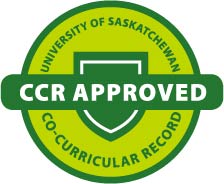Kant's Account of Our Moral Obligations Concerning Animals
Animals in Kantian Ethics
DOI:
https://doi.org/10.32396/usurj.v5i1.353Keywords:
Animals, metaethics, agency, obligations, normative, desensitizationAbstract
Immanuel Kant holds that rational agency is a necessary condition to merit direct moral consideration;[1] therefore, he claims that we have no direct duties to animals. Nevertheless, he argues that we still ought to treat animals well, but only because we have duties to protect and develop our own moral character. Thus, what appear to be duties to animals themselves are, according to Kant, only indirect duties to them. However, the substantial challenge here is figuring out whether Kant’s indirect duties can provide a clear and adequate scope of our moral obligations concerning animals. In this paper, I argue that it cannot: if animals matter morally only in relation to our moral development, then our obligations regarding animals would be too vague and inadequate. To make my argument, I will examine some of Kant’s normative claims regarding how we should treat animals, and then demonstrate that what may appear morally enhancing can or may morally desensitize us. By demonstrating that the causes of moral desensitization are not categorical, I will show that it is insufficient to place our moral development as the only basis for our concern regarding animals. Furthermore, Kant’s indirect duties are a corollary of his metaethical commitments; therefore, by revealing problems that result from his indirect duties, I will infer that his metaethics need to be revised. My task in this paper is not to revise Kant’s ethics concerning animals, but to prove that it requires revision.
Downloads
Published
Issue
Section
License
Articles: USURJ’s current Publication Agreements apply a Creative Commons Attribution-NonCommercial License (CC-BY-NC) by default. The CC BY-NC license lets others remix, tweak, and build upon work non-commercially. The author(s) can choose a different CC license, as outlined in https://creativecommons.org/about/cclicenses/. Please see the PDF for each article to determine what license is applied to that article. Author(s) can also request to reserve all copyright (All Rights Reserved). If there is no indication for articles published before September 2020, assume the author retains all rights beyond those necessary for publication by USURJ. All articles published after September 2020 will apply one of the aforementioned CC licenses. See the Publication Agreement under the Submission Preparation Checklist or Author Guidelines for more information. Artwork: All copyright for the original artwork remains with the artist unless they wish to apply a Creative Commons (CC) license to the artwork. Please see the PDF for each artwork to determine what license is applied to that artwork.







